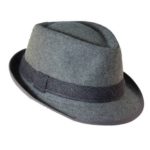I started listening to steampunk audiobook Leviathan by Scott Westerfeld, which I have heard from multiple sources is a great series, and the premise intrigued me as it is an alternate history of World War I. Also, later books in the series won awards and stuff.
Unfortunately, nobody told me that this was a young adult series, where the two protagonists are 16-ish. In fact, I would argue that this is not just young adult, but middle grade, because the kids act like middle grade kids and are usually accompanied by adult guides. They aren’t "rebeling" like most of the kids in young adult books.
That by itself wouldn’t bother me – although I probably would not have bought it if I’d known it beforehand, because I generally do not relate at all to the trials and tribulations of middle grade kids and young adults. No, I still might like this book if it weren’t for one thing: The plot seems like a thinly-veiled excuse to explore the worldbuilding.
A great deal of time is spent describing these mechanical contraptions called "walkers" and these genetically-created airbourne creatures that float like balloons. The protagonists just happen to be on a path that comes in contact with these neat worldbuilding things. Alek just happens to be learning to drive a walker, and ends up running from pursuers in a walker, and Dylan just happens to want to join the navy and fly, and just happens to get stuck on a flying leviathan by chance. Even that contrivance wouldn’t bother me if the characters pulled me into their stories. Unfortunately, I find that I don’t care the slightest bit about these two kids. Maybe I am biased against kid protagonists in general, but their problems just don’t interest me. Dylan is a girl dressing up as a boy so she can fly with the others – how many times has *that* plot been done – but so far, her part could have been played by a boy just as well. Alek is the son of the Archduke Ferdinand who was assassinated to start World War I – that could have been interesting, but Prince Alek does not seem to have any emotional depth, and he comes across as a petulent child.
<Time passes.>
I am now about 2/3rd through the audiobook, having listened mostly without paying a lot of attention, and the two main characters finally ran into each other. My internal wannabe editor tells me that this is where the book *should* have started, because the relationship between these two characters from radically different worlds makes the book funny and compelling. Far more compelling than their individual lives.
 Okay I’m going to say it. Or write it. Whatever. Game of Thrones is getting a bit dull. In the books, it’s fine to have twenty different storylines, because it’s an epic fantasy after all and you get to stay with the characters for at least a chapter before moving on, and they are usually long chapters.
Okay I’m going to say it. Or write it. Whatever. Game of Thrones is getting a bit dull. In the books, it’s fine to have twenty different storylines, because it’s an epic fantasy after all and you get to stay with the characters for at least a chapter before moving on, and they are usually long chapters. The
The